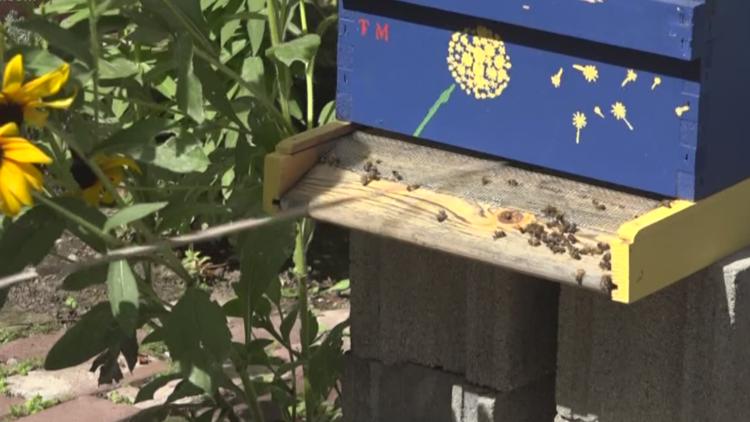WASHINGTON — Researchers found that longer autumns with good flying weather for bees raise the chances of colony collapse in the upcoming spring, according to a study published in the journal Scientific Reports.
This is because flying shortens the lifespan of bees and worker honey bees will fly to find flowers whenever the weather permits, regardless of how much honey is already in the hive.
Whenever the temperature rises above 50 degrees Fahrenheit, worker bees will leave the hive to forge for food. When it gets colder, bees cluster in the hive, huddling with other bees, eating honey reserves, and shivering, which reportedly helps keep the bees warm.
When spring comes around again, the adult worker bees start flying again, which also means they also start dying. If too many worker bees die before new bees are ready to forge for food, the colony has a higher likelihood of collapsing. Scientists estimate this happens when there are fewer than 5,000 to 9,000 adult bees in the hive.
According to the study, places like eastern Washington and near the border of Oregon are potentially harmful to colonies.
Researchers say they looked at simulations that took seasonal factors like temperature, wind and the amount of daylight into account, making them fairly conservative models.
“This is a case where a small amount of warming, even in the near future, will make a big impact on honey bees,” said lead author Kirti Rajagopalan, a Washington State University climate researcher. “It’s not like this is something that can be expected 80 years from now. It is a more immediate impact that needs to be planned for.”
The researchers also cited a possible solution, saying that putting colonies into cold storage will cause honey bees to cluster in their hive, preventing bees from leaving and preserving their hive before too many worker bees wear out.
"A lot of beekeepers are already practicing this management technique of storing bees indoors because it has a lot of immediate potential to help in a number of ways,” said co-author Brandon Hopkins, a WSU entomologist. “These findings demonstrate that there are additional benefits to this practice for the survival of colonies in a changing climate.”
DOWNLOAD THE KREM SMARTPHONE APP
DOWNLOAD FOR IPHONE HERE | DOWNLOAD FOR ANDROID HERE
HOW TO ADD THE KREM+ APP TO YOUR STREAMING DEVICE
ROKU: Add the channel from the ROKU store or by searching for KREM in the Channel Store.
Fire TV: Search for "KREM" to find the free app to add to your account. Another option for Fire TV is to have the app delivered directly to your Fire TV through Amazon.
Apple TV: Search "Spokane News from KREM" in the Apple store or follow this link.
To report a typo or grammatical error, please email webspokane@krem.com.



